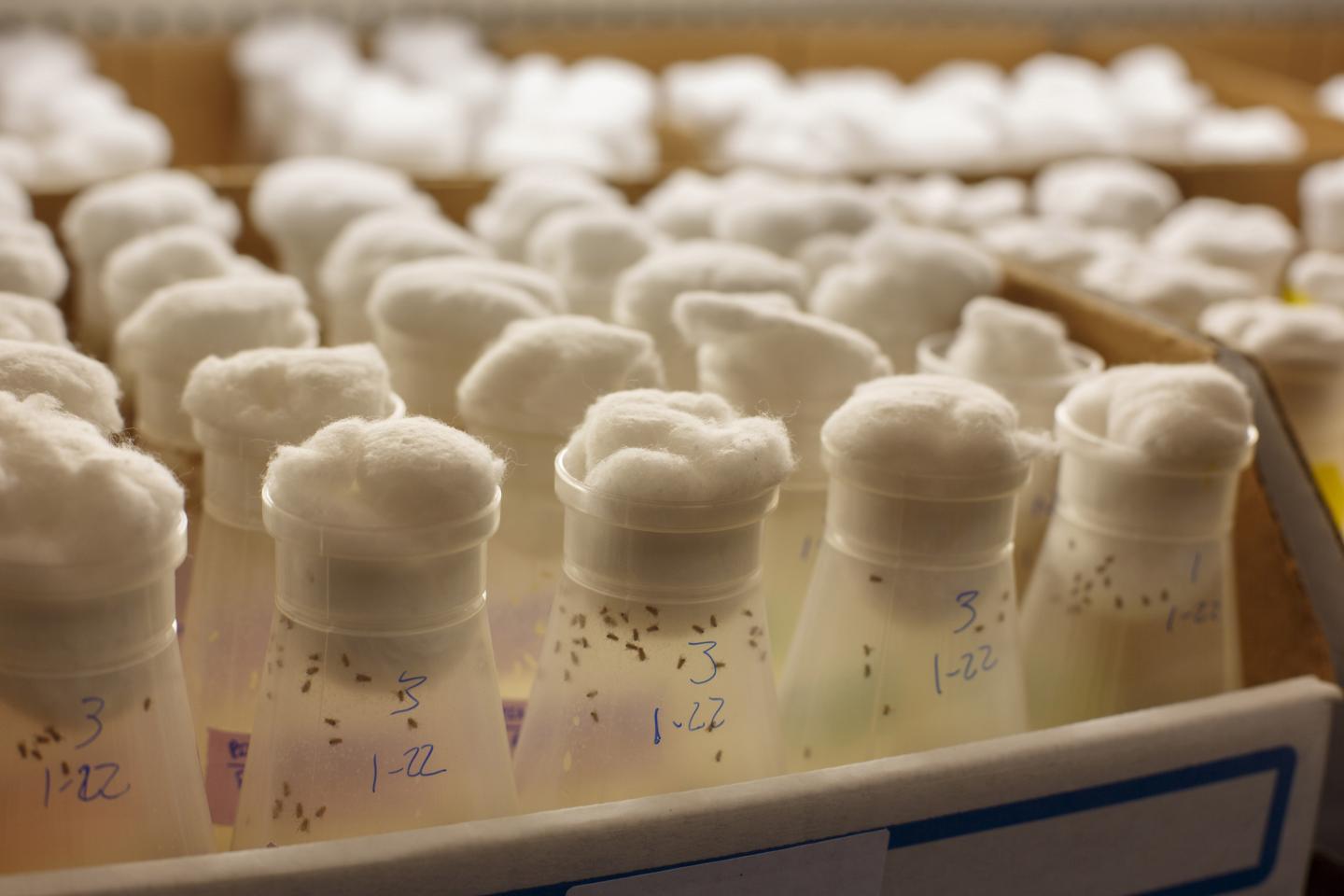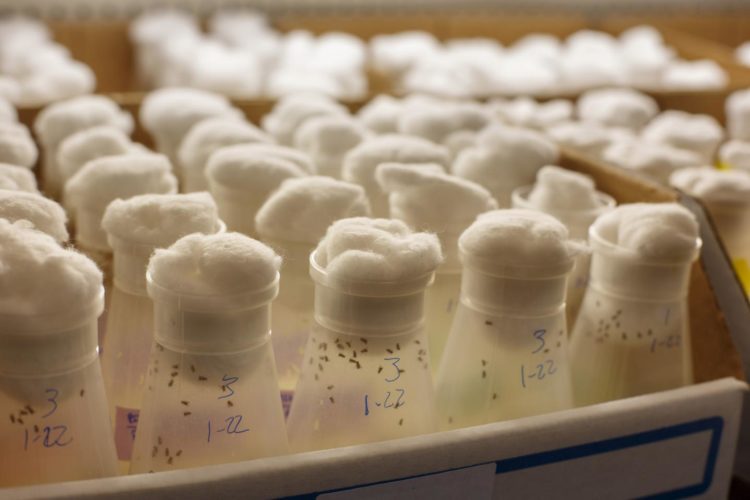Suppression of genetic switch boosts hardwired memory in Drosophila

Credit: Scott Wiseman for Scripps Research
JUPITER, Fla.–Jan. 13, 2020–Storing and retrieving memories is among the most important tasks our intricate brains must perform, yet how that happens at a molecular level remains incompletely understood. A new study from the lab of Neuroscience Professor Ronald Davis, PhD, at Scripps Research, Florida, sheds light on one element of that memory storage process, namely the storage and retrieval of a type of hardwired long-term memory.
The Davis team found that moving memories to long-term storage involves the interplay of multiple genes, a known group whose activity must be upregulated, and, unexpectedly, another gatekeeping gene set, Ras, and its downstream connecting molecules, which are down-regulated. If either Ras or its downstream connector Raf are silenced, long-term memory storage is eliminated, the team writes in the Proceedings of the National Academies of Sciences, published the week of Jan. 13.
The type of memory they studied, ironically has a rather difficult-to-remember name: “protein-synthesis dependent long-term memory,” or PSD-LTM for short. To study how it and other types of memory form, scientists rely upon the fruit fly, Drosophila melanogaster, as a model organism. The genetic underpinnings of memory storage are mostly conserved across species types, Davis explains.
To assess how the flies’ memory consolidation process works at a molecular level, they used a process called RNA interference to lower expression of several candidate genes in several areas of the fly brain. Doing so with both the Ras gene and its downstream molecule Raf in the fly brain’s mushroom body, its memory-storage area, had a two-pronged effect. It dramatically enhanced intermediate-term memories while completely eliminating PSD long-term memory of an aversive experience, Davis says.
The team’s experiments involved exposing flies to certain odors in one section of a glass tube while simultaneously administering a foot-shock. Flies’ subsequent avoidant behavior on exposure to that odor indicated their recollection of the unpleasant shock. Regardless of how many times the flies were “trained,” lowering expression of Ras and Raf reduced their PSD long-term memory performance, explains first author Nathaniel Noyes, PhD, a research associate in the Davis lab.
While the Ras enzyme, Ras85D, was already known for its roles in organ development and cancer, the studies showed that in the adult brain, it apparently plays memory gatekeeper, helping direct whether experiences should be remembered as intermediate memory that dissipates after a time, or as long-term “protein-synthesis dependent” memory that persists.
Gating off the memory from the intermediate storage process shifted it over to PSD long-term memory storage, indicates that it’s an either-or situation. Intermediate storage appears to be the fly brain’s preferential, default pathway, Noyes says. He expects that the neurotransmitter dopamine will prove to play a key signaling role.
“We believe that dopamine signals to the brain that this memory is important enough to be stored long-term. We speculate that Ras and Raf receive this dopamine signal and thereby block intermediate memory and promote PSD long-term memory,” Noyes says.
How this “intermediate” memory system works in humans requires further study as well, he adds.
“It’s becoming apparent that many of the same genes involved in intermediate memory storage also play a role in mammalian memory and plasticity,” he notes.
###
In addition to Noyes and Davis, the authors of “Ras acts as a molecular switch between two forms of consolidated memory in Drosophila,” published the week of Jan. 13, 2020 in PNAS, include Erica Walkinshaw, also of Scripps Research.
Media Contact
Stacey Singer DeLoye
[email protected]
561-228-2551
Original Source
https:/





